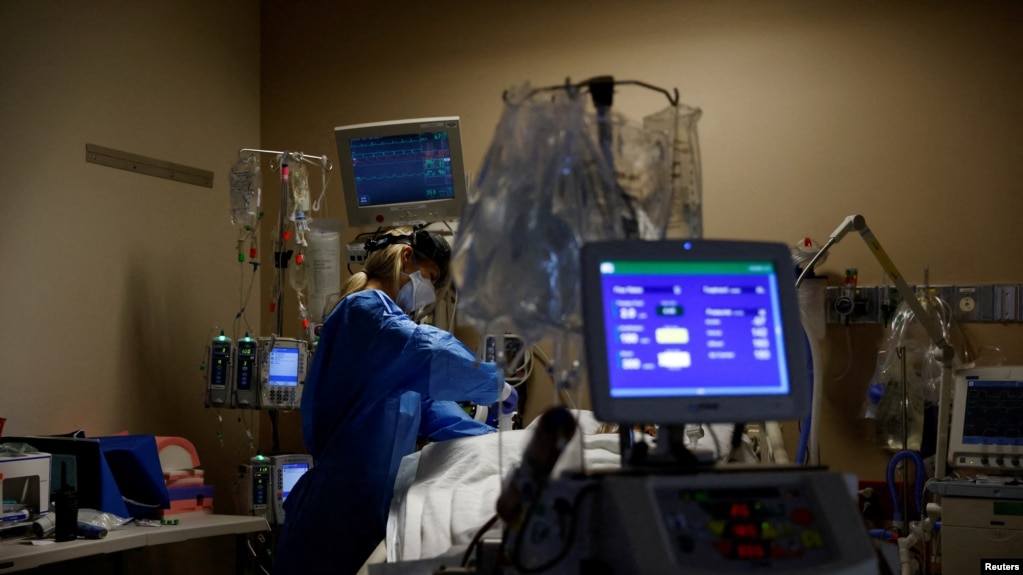A worldwide
cooperation drove by analysts in Canada and Brazil is applying imaginative
subsidizing and testing techniques to decide if existing prescriptions can give
less expensive and more compelling medicines for COVID-19 and is empowered by
its underlying outcomes.
Considering it the
"TOGETHER Trial," specialists prevalently in Brazil and Canada allude
to their strategy as "versatile stage clinical preliminary," which
allows a few likely medicines to be tried all the while, decreasing expenses
and the quantity of individuals who should be tried.
The scientists have
additionally speeded up the quest for viable COVID medicines by depending on
financing and backing from private establishments, colleges and the private
area, rather than the tedious course of looking for government subsidizing.
One such preliminary
led in Brazil starting in June 2020 found fluvoxamine, a typical stimulant,
diminished hospitalization and passing of COVID-19 patients by 32%.
Ed Mills, a clinical
disease transmission specialist who instructs at Ontario's McMaster University,
is assisting with organizing the task from workplaces in Vancouver, Canada. He
clarified the "versatile stage" model in which more than one
medication is tried simultaneously.
"Commonly, in a
clinical preliminary, you hope to see a medication versus fake treatment,"
Mills told VOA. "Indeed, in our situation, we're completing five
medications versus fake treatment, six medications versus fake treatment."
While uncovering
promising information on fluvoxamine, finding how treats work has been
similarly significant. Plants said the gathering's preliminaries showed that
hydroxychloroquine, lopinavir, metformin, doxazosin and ivermectin don't assist
with keeping hospitalization from COVID-19.
Two of those
medications, hydroxychloroquine and ivermectin, acquired reputation in the
United States as some COVID-19 patients have demanded taking them
notwithstanding alerts by U.S. wellbeing authorities that the medications are
incapable, best case scenario, for treating a Covid disease.
In the midst of a
worldwide influx of diseases driven by the omicron variation, the undertaking
is selecting around 100 members per day, with preliminaries now in progress in
South Africa, Pakistan and Brazil. Around 5,000 individuals have taken part to
date in the preliminaries, which at present affect around 2,500 individuals.
Plants said the
analysts are concentrating on a few other existing medications, and mixes of
those drugs, to check their viability.
"One would be a
medication called peginterferon lambda, which is a solitary subcutaneous
infusion, single-portion medication to treat COVID. I'm very hopeful with
regards to that. We're likewise now assessing blend techniques," he said.
"Thus, we
realize that fluvoxamine works. We additionally realize that budesonide works -
a breathed in steroid. What might occur assuming that you set up them? In this
way, I believe that will be a truly incredible, modest intercession that can be
applied," he said. The two medications are broadly accessible and - in
certain nations - conservative.
Plants
said he anticipates further outcomes inside the following not many weeks.
Dr. Brian Conway,
the clinical overseer of the Vancouver Infectious Diseases Center, sees the
work being led by the TOGETHER Trial as a model for some future clinical
exploration.
New meds require
thorough and tedious clinical preliminaries before they can be supported for
use, he noted. Be that as it may, progress can be speedier "assuming a
medication's been around for some time, it's been authorized, it's ready to
move, and you're attempting to choose if there's another sign for it."
Conway, who isn't engaged
with the TOGETHER Trial, was likewise intrigued with the scientists' procedure.
"I believe that
going ahead, they're fast. They are thorough. They create the sort of data that
we really want to assist with directing clinical practice," he said.
"These versatile stages are, to my psyche, an exceptionally proper
approach to sorting out in the event that they neutralize something for which
they have not yet been tried or endorsed."
Conway additionally
considers the program to be a decent method for countering unverified tales
about problematic drugs.
"Also it dodges
us from getting into a circumstance where somebody says, 'I gave this treatment
to eight or 10 individuals and it saved their lives. So you ought to do this,
as well,'" he said.
"That is not
the way in which we ought to do science. That is not the way in which we should
rehearse medication, particularly in the time of COVID," he said.
"Also it assists us with being thorough, responsive, and as supportive to
our patients as we can be."
Among the focus
points from the examinations, as indicated by Mills, is simply the
"Worldwide South" - emerging nations in the Southern Hemisphere - has
a ton to educate the alleged "Worldwide North," or more created
countries.
"In spite of
the fact that we are the ones that will more often than not think of the
principles on the study of disease transmission, they're the ones that apply
those rules on the study of disease transmission and have useful
experience," he said.
"Assuming that
you contemplate a nation like Rwanda, for instance, where I've spent quite a
while, they manage Ebola observing constantly, they manage intestinal sickness,
manage HIV constantly. They're extremely, competent at irresistible
illnesses," Mills said.
This isn't whenever
Vancouver first plays had an impact in propelling the study of disease
transmission. MRNA immunizations created by Pfizer and Moderna depend on lipid
nanoparticles to enter human cells. That innovation was first investigated at
the University of British Columbia in the last part of the 1970s.


0 Comments